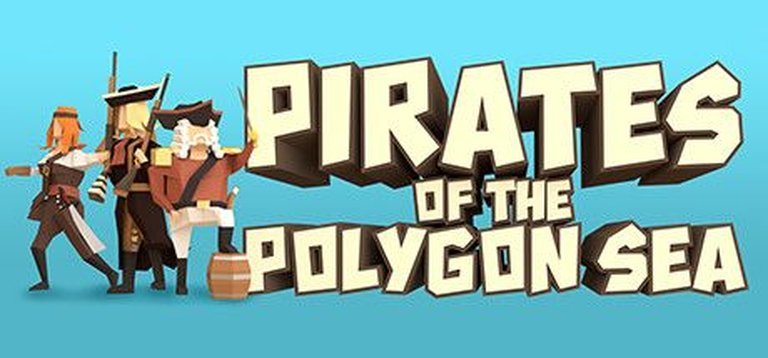- Release Year: 2016
- Platforms: Windows
- Publisher: Praxia Entertainment Inc
- Developer: Praxia Entertainment Inc
- Genre: Strategy, Tactics
- Perspective: Diagonal-down
- Game Mode: Single-player
- Setting: Caribbean, Sea pirates
- Average Score: 67/100

Description
Pirates of the Polygon Sea is a strategy game set in a mythical pirate world where players embark on high seas adventures. Command your ship, battle fierce sea creatures, navigate treacherous storms, and engage in epic naval combat to uncover lost treasures and rule the Mythic Isles as a legendary swashbuckler.
Gameplay Videos
Pirates of the Polygon Sea Cracks & Fixes
Pirates of the Polygon Sea Guides & Walkthroughs
Pirates of the Polygon Sea Cheats & Codes
PC version
After launching the trainer, press the corresponding keys on the numeric keypad to activate each cheat.
| Code | Effect |
|---|---|
| NumPad1 | God Mode – ship invulnerable to all attacks |
| NumPad2 | Instantly acquire $999,999,999 |
| NumPad3 | Instant Fireball timer cooldown removal |
| NumPad4 | Instant Cannon timer cooldown removal |
| NumPad5 | Super Speed – move at the speed of light |
Pirates of the Polygon Sea: Review
Introduction
Pirates of the Polygon Sea was a crowdfunded labor of love from Praxia Entertainment, promising players a return to the chunky 90s graphics while delivering an immersive high-seas adventure. Released in 2016 as an Early Access title, the game sought to combine the strategy elements of town-building with the action of naval combat.
However, after years of updates and patches, the final version (released in 2018) remains a mixed bag. This review delves into every aspect of the game to determine its place in the annals of gaming history.
Development History & Context
In 2016, inspired by their previous success with Beyond Sol, Praxia Entertainment launched a Kickstarter campaign for Pirates of the Polygon Sea. The development utilized Unity engine, allowing for cross-platform compatibility, and featured art by Alex Pushilin known for his low-poly style.
Early Access brought frequent patches introducing new features such as multiplayer, resource gathering systems, and multiple playable characters. However, this incremental development approach also meant that some systems (like AI difficulty tuning) were added without comprehensive testing, leading to balance issues that persist in the final product.
The game’s 90s-style polygon visuals were intended to be a selling point, but as time went on, concerns about graphical obsolescence arose, especially in a market where high-fidelity graphics are the norm.
Narrative & Thematic Deep Dive
Set in the mythical Caribbean, players choose from several captains (like Blackwood or Dreadbeard) each with unique backstories and playstyle bonuses. The narrative framework revolves around controlling islands, amassing wealth, and rising through the ranks. There’s no linear story progression; instead, emergent tales unfold through player actions, dynamic events, and interactions with AI factions.
Thematic elements of piracy, exploration, trade, and sea monster battles are central. However, the game’s focus on sandbox mechanics over a driving narrative may leave those seeking a strong story somewhat disappointed. The dialogue and pirate banter are mostly surface-level, adding flavor but not deep immersion.
Gameplay Mechanics & Systems
At its core, Pirates of the Polygon Sea is a blend of real-time strategy and action-adventure genres. The gameplay loops include:
-
Naval Combat: Players must skillfully maneuver their ships, fire broadsides, deploy burning oil, and board enemy vessels. Wind and wave mechanics add realism but can be frustrating for precision control.
-
Town Building: Expanding your coastal settlement with docks, markets, guard towers, and resource buildings is crucial. Proper planning is required to manage worker allocation, resource generation, and defenses.
-
Economy Management: Trading resources between towns, managing supply/demand fluctuations, and investing in upgrades requires strategic thinking. However, the dynamic economy can be unpredictable, leading to boom-and-bust cycles that may feel unbalanced.
-
Exploration & Discovery: Sailing uncharted waters reveals treasure, shipwrecks, mythical creatures, and new islands. This sense of discovery is a highlight, though the procedurally generated world may lack consistent quality.
Each system is competently implemented but sometimes hampered by bugs (like AI pathfinding issues) and design choices (like non-camera-controllable camera movement). Multiplayer adds cooperative and competitive elements, though server stability and character selection limitations have been reported.
World-Building, Art & Sound
The game’s art is its most distinctive feature. The low-poly, cel-shaded style evokes 90s classics like Secret of Evermore orHEADER. However, this aesthetic can appear dated compared to more modern visuals. While some assets like the Kraken and other sea monsters are well-designed, environmental textures may lack detail.
Sound design includes pirate shanties, water ambiance, and dynamic combat effects. The audio contributes to the atmosphere but could be more immersive with a wider variety of soundscapes.
Reception & Legacy
Pirates of the Polygon Sea received mixed reviews upon release. Positive feedback cited the unique visuals, engaging combat, and sandbox freedom. Negative reviews pointed to technical issues, AI inconsistencies, and an outdated engine. The game’s Steam rating currently sits at 67/100, indicating a polarized player base.
While the game didn’t achieve commercial success on the level of its ambitions, it holds a cult following among fans of pirate-themed games and retro aesthetics. Its legacy is that of a passion project that delivered on its core promises but ultimately fell short of broader appeal due to technical constraints and design flaws.
Conclusion
Pirates of the Polygon Sea is a niche gem that shines brightest for players yearning for a pirate-themed sandbox with tactical naval combat and town-building mechanics. While its unique art style and strategic depth offer a refreshing alternative to modern AAA titles, the game’s technical debt and unbalanced design elements prevent it from achieving wider acclaim. Though not a flawless masterpiece, it remains a fondly remembered entry in the strategy genre’s annals.